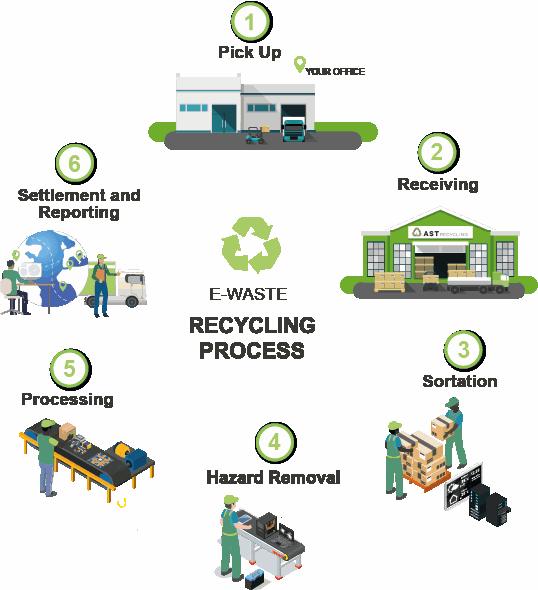
5 minute read
News round-up
from ReSource May 2022
by 3S Media
SUSTAINABILITY NEWS FROM AROUND THE WORLD
SANDF takes green leap with biogas project South African plastics industry signs treaty
Advertisement
The local plastics industry has signed an international, legally binding agreement to end plastic pollution by 2024.
The resolution – titled ‘End Plastic Pollution: Towards an internationally legally binding instrument’ – is described as a landmark agreement that is the most important international multilateral environmental deal since the Paris Climate Accords.
The signing took place at the fifth session of the UN Environment Assembly (UNEA-5.2) alongside heads of state, ministers of environment and other representatives from 175 nations.
Its purpose is to drastically reduce the impact of plastic pollution on the marine environment by exploring the full life cycle of plastic from source to sea – which includes methods of plastic production, recycling, processing, use and collection.

The South African National Defence Force (SANDF) is taking its ‘green soldiering’ environmental concept a step further by installing biogas plants at two of its military bases.
With the support of the South African National Energy Development Institute (Sanedi), the SANDF has had the biogas stoves set to be in full operation in 2023. This will enable the military to use gas to cook meals for about 220 people daily at its bases in Limpopo, instead of using fossil fuels, as was previously the case.
The biogas project is one of several waste recycling and energysaving programmes undertaken by the SANDF in partnership with Sanedi.
Sanedi asserts that, by finding a more responsible way of disposing of its kitchen biological waste, the SANDF has taken the first step towards implementing renewable energy while also removing a waste challenge – with the added benefit that the biodigesters produce a liquid fertiliser that can be used in fertilising gardens for food or ornamental production.
The military implemented this technology as a pilot project to prove the concept could help it with waste removal and energy generation.

Woolworths and Standard Bank’s R600 million sustainability funding deal
Standard Bank has partnered with Woolworths Holdings Limited to conclude the first sustainability-linked working capital facility in South Africa to the value of R600 million.
This partnership is a testament to Woolworths’ commitment to achieving bold sustainability targets and realising its vision to be one of the world’s most responsible retailers.
As sustainability-linked funding ties the terms of funding to ESG outcomes, it supports and incentivises responsible corporate behaviour and the creation of shared value. The financing structure is also very strongly aligned to Standard Bank’s own Social, Economic and Environmental impact framework.
In this second sustainability-linked deal concluded with Standard Bank, the bank stepped in as the lender and sustainability coordinator to support Woolworths’ drive to ensure responsible environmental resource management of key agreed-on sustainability performance indicators.
These included Woolworths food, private-label fashion, beauty and home goods, as well as electricity consumption in corporate stores.

Municipal-focused strategy to enhance recycling rates
Producer responsibility organisation (PRO) Polyco is set to launch a municipalfocused recycling strategy, for the purpose of significantly enhancing South Africa’s recycling rates.
In a partnership with Buffalo City Metropolitan Municipality, the Border-Kei Chamber of Business, and the Buffalo City Development Agency, Polyco will be working with municipalities to invest in recycling infrastructure, innovation, and the implementation of a consumer education and awareness campaign in East London.
Polyco is a registered PRO in South Africa, which has decided to expand its focus to all plastic types under extended producer responsibility regulations. This is in response to the recently introduced waste management regulations.
Patricia Pillay, CEO at Polyco, says that there is a growing demand for recyclate across industries in South Africa and – by improving collection facilities, recycling infrastructure and influencing consumer behaviour towards recycling – they can ensure they start meeting the demand for recyclate.

RECYCLING GATHERS MOMENTUM IN AFRICA
More and more plastic waste is being diverted from landfills and into a circular economy that grows employment and entrepreneurship in African countries.
Food and beverage packaging is an important part of modern life, helping to ensure food safety and reduce food waste. However, the world has a packaging problem that requires an immediate response.
As part of its responsibility to help address this challenge, Coca-Cola Beverages Africa (CCBA), together with The Coca-Cola Company, has set the following ambitious goals: • to collect a bottle or can for everyone it produces by 2030 • to use 50% recycled content in all packaging • to make 25% of its packaging reusable by 2030, while making all its packaging 100% recyclable by 2025. The initiative, called World Without Waste, relies on partnerships with customers, consumers, communities, industry and governments to succeed.


There is good news for households and waste collectors – paper grocery and takeaway food bags can now be collected for recycling.
Under a new campaign name, ‘Recycling in the Bag’, Fibre Circle – the producer responsibility organisation for the paper sector – has teamed up with food service and packaging producer Detpak and Remade Recycling to show 200 recycling collectors that paper grocery bags and brown takeaway food bags can be collected from households and sold with their wastepaper collections.
Every year, more than 1.1 million tonnes of paper and paper packaging are recovered in South Africa and recycled into new products that we use every day. These products can then be recycled again, in many cases up to 25 times.
Samantha Choles, communications manager, Fibre Circle, explains that old cardboard boxes and paper bags will be repulped into other paper types, which will become new cardboard boxes and paper bags – and so the cycle continues.
Used white paper is recycled into tissue products such as toilet paper, while several paper grades are recycled into common household packaging such as matchboxes, toothpaste boxes and cereal boxes.










